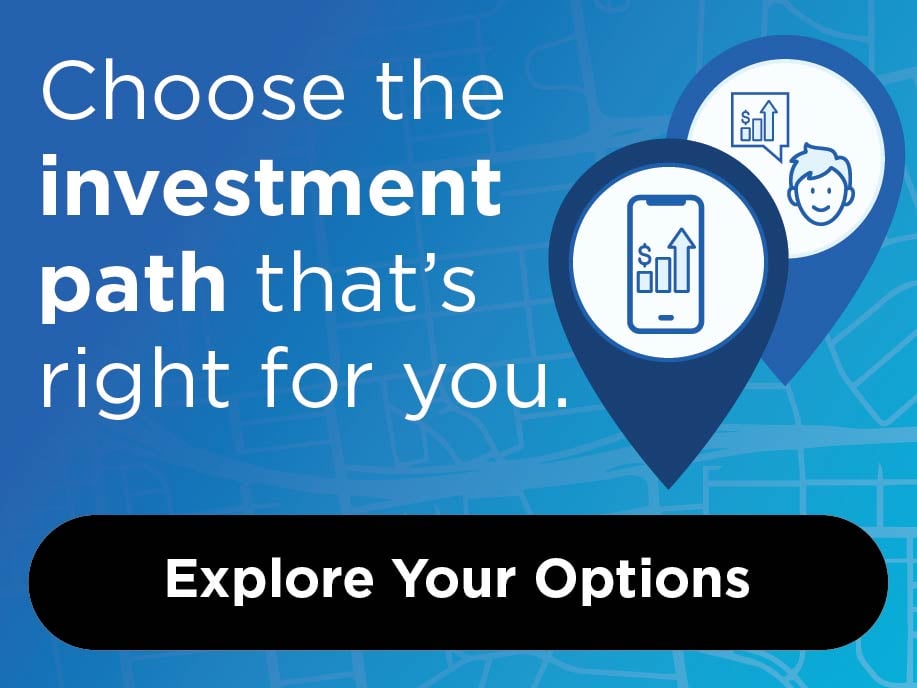
Financial literacy is a crucial skill needed to make informed decisions about your money. Understanding concepts like budgeting, credit and investing is more important than ever for your financial well-being.
Here are seven important financial topics you should know plus additional resources to put you on a path to thrive.
1. Budgeting
Budgeting is a basic foundation of personal finance. Budgeting is a plan that helps you manage your money. Effectively and purposefully managing your money will help you reach your short- and long-term goals, like saving for a vacation, buying a home or planning for retirement.
Budgeting Methods
There’s not one right way to budget. Instead, it’s about finding the strategy that works best for you. There are several different budgeting methods that people have success with:
50/30/20 Budget
Using the 50/30/20 budget method, you allocate 50% of your budget to needs such as housing, food, utilities, insurance and transportation. 30% of your income goes toward wants, which can be eating out, shopping or travel. Finally, 20% of your income goes toward savings and debt. This budgeting system is popular, but likely not ideal for people with significant debt to pay off.
Zero-Based Budget
Using the zero-based budget method, you plan your spending by taking your total monthly income and allocating it to budget categories until you have $0. The premise of this system is finding a spot for every dollar, even if that spot is savings or debt payoff. This method requires a new budget each month because some expenses may change month-to-month.
Pay-Yourself-First
This strategy is also known as reverse budgeting. Using this method, figure out how much you want to pay yourself each month, meaning how much you want to put toward your savings. From there, you can allocate the money left over. Most people pay themselves 10-20% of their income. If money is tight, this is not an ideal budget because it’s not detailed.
Envelope System
Using this strategy, you have an envelope for each spending category. In each envelope is the cash available to spend for the month. When the envelope is empty, you’re done spending in that category. This method doesn’t consider online shopping or online bill payments, but the envelope method can be used in conjunction with other types of budget methods.
Budgeting Apps
There are many budgeting apps on the market to help you plan your spending and track your expenses throughout the month. Our savings calculators are also handy when it comes to savings goals.
2. Debt
When it comes to financial literacy, it’s important to understand the types of debt and how to manage them.
Types of Debt
Revolving vs. Non-Revolving Debt
Every debt is either revolving or non-revolving. Revolving debt is one where you can continuously spend and pay off the debt. The most common revolving debt is a credit card, and a line of credit is also a type of revolving debt.
Non-revolving debt is one where you borrow a lump sum and then pay it off over a specific term. Non-revolving debts include mortgages, student loans, personal loans, and car loans.
Secured vs. Unsecured Debt
A secured debt is one that is secured by collateral or an asset the lender can seize if you don’t make your payments. Mortgages and auto loans are secured debts since your lender can seize your home or car if you don’t pay them back.
Unsecured debts don’t have any collateral behind them. The lender can still take legal action to get their money, but there’s no asset they can seize from you. Student loans and credit cards are examples of unsecured debts.
It’s important to fully understand each debt you have, including:
- Total balance
- Interest rate
- Minimum monthly payment
- Estimated payoff date
Once you understand your debt, you can use a debt payoff method like the debt snowball or debt avalanche to pay it off. Consolidating your debt is also another option to help pay down your debt faster.
3. Credit
Credit refers to the ability to borrow money. But when people talk about credit, they’re usually talking about either their credit report or their credit score.
Credit Report
Your credit report is a full list of all your current debt accounts, including how much you owe, who you owe it to, and the monthly payments you’ve made. It also includes possibly negative information, such as any accounts in collections, and whether you’ve filed for bankruptcy.
When lenders are deciding whether to lend you money, they look to your credit report to see how responsibly you’ve handled and repaid debt in the past. You can download a free copy of your credit reports at AnnualCreditReport.com.
Credit Score
Your credit score is a number between 300 and 850 which is essentially a numerical rating of your credit report. It’s a snapshot of how responsible you are with debt. Here’s how the scores fall on a scale of excellent to poor, according to Experian:
- Exceptional: 800-850
- Very good: 740-799
- Good: 670-739
- Fair: 580-669
- Very poor: 300-579
The Importance of Credit
Your credit score is one of the most important numbers in your financial toolbox. Someone may run your credit anytime you apply for a loan or credit card, rent an apartment or even apply for a job.
A poor credit score can result in being denied loans or stuck with high interest rates. It can also result in you being turned down for apartments and jobs. A very good or exceptional score can potentially save you thousands with better interest rates.
4. Saving
It probably doesn’t come as a surprise that saving is one of the most important components of personal finance, but many people simply aren’t doing it. In fact, 2024 data shows that 44% of Americans could not afford a $1,000 emergency without taking on more debt, according to Bankrate.
Everyone should have an emergency fund, and if you don’t, then this should be your first savings priority. Your emergency fund can help you cover any unforeseen expenses. It can also serve as an income replacement if you lose your job. Most experts recommend having between three- and six-months’ worth of expenses saved in your emergency fund.
When it comes to saving for a big goal, the best way to reach it is to divide the total number you need to save by the number of months you’d like to have it saved. That will tell you how much to save each month to reach your goal.
5. Investing
Investing is another important aspect of your finances. Most people wouldn’t have enough money to retire by using simple savings accounts. Instead, when you invest, your money compounds and grows at a much faster rate.
There are a few investing terms everyone should know before they start investing:
- Asset Allocation - How you divide your assets across all of your investments
- Time Horizon - The number of years before you expect to need the money you’re investing
- Diversification - The practice of spreading your money across many different investment types
- Risk Tolerance - Your ability and willingness to lose money in the stock market
A 2024 survey by Northwestern Mutual discovered that the average family believes they’ll need about $1.46 million to retire comfortably. Unfortunately, the average family also only has about $88,400 in retirement accounts. Luckily, by starting early and investing consistently, you’re more likely to reach your retirement goals.
6. Homeownership
Homeownership is a common goal for many people. And there are many benefits of owning a home including appreciation, tax benefits, a way to build savings through building equity, freedom to own your own home and the stability it can provide you and your family.
Here are a few things to keep in mind when it comes to buying a home:
- Only buy what you can afford – check out our Mortgage Affordability Calculator to determine how much of mortgage you can afford and that works for your budget.
- A general rule of thumb is that your housing costs shouldn’t exceed 30% of your monthly income.
- No one knows your financial situation like you do — not even a lender. Be sure that the monthly payment for your home fits comfortably within your budget. Keep in mind your monthly costs don’t just include your principal and interest. You also should account for home insurance and property taxes, which can be more expensive than people realize.
- Save for a down payment – For most types of loans, you must have a down payment to buy a home. Down payments typically range from 3.5% for an FHA loan to 20% for a conventional mortgage. There are loan options that don’t need 20% down, but you will likely pay PMI (Private Mortgage Insurance) if you put down a smaller down payment.
- There will also be upfront costs in addition to the down payment. These include closing costs, home inspection and moving costs.
- Maintain a home emergency fund – Maintaining a home can be expensive, and experts generally recommend saving about 1% of your home’s value each year for maintenance and repairs. In addition to your personal emergency fund, it’s best to keep a separate emergency fund just for your home so you can easily afford any unexpected repairs.
7. Insurance
If there’s ever an emergency — and chances are there will be — you’ll be glad you have insurance. Buying insurance involves paying a company a monthly premium to cover your liabilities in an emergency. Types of insurance that most people should have include:
- Homeowners' or renters’ insurance
- Auto insurance
- Life insurance
- Health insurance
When it comes to purchasing insurance, it’s worth your time to shop around. You can go directly to an insurance carrier for a price quote or you can work with an insurance broker or agent that works with several insurance carriers to help find the right coverage and price for you.
As you educate yourself on financial literacy, this list is a great starting point. Check out our Financial Well-Being Blog where you will find more information on each of these important topics.





